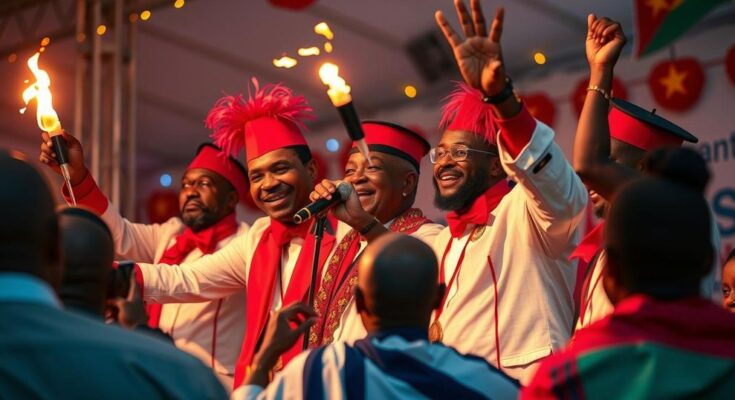Mozambique’s highest court has upheld the Frelimo Party’s victory, led by president-elect Daniel Chapo, amidst allegations of electoral fraud resulting in extensive protests. Despite acknowledging election irregularities, the court deemed the results valid, leading to renewed unrest from opposition supporters. Chapo has committed to addressing electoral reforms, yet tensions remain high following violent clashes with security forces and demands for change.
Mozambique’s Constitutional Council has affirmed the electoral victory of the ruling Frelimo Party and its 47-year-old presidential candidate, Daniel Chapo, despite widespread allegations of electoral fraud and subsequent violent protests. The council, led by Chairperson Lucia Ribeiro, acknowledged irregularities but insisted they did not significantly affect the election outcomes. Chapo received 65.17% of the votes, while opposition candidate Venâncio Mondlane garnered 24.29%, with Frelimo also securing a majority in Parliament.
Following the announcement of the results, protests erupted across Mozambique, primarily spearheaded by Mondlane’s supporters, resulting in clashes with security forces and tragic casualties. Human rights activists sharply criticized the council’s decision, arguing that it exacerbates the existing social tensions. Chapo, in his acceptance speech, emphasized the necessity for electoral reforms and pledged to work for the interests of all Mozambicans, not just his party. However, dissent continues to grow, with protesters burning tires and blocking roads in Maputo, signaling a persistent demand for justice and reform in the electoral process.
In the context of Mozambique’s political landscape, the Frelimo Party has maintained a stronghold on power since the country’s independence nearly five decades ago. The recent elections held on October 9, 2024, encompassed presidential, legislative, and provincial contests amidst claims of significant electoral malpractices. The aftermath has been characterized by violent protests, leading to over 130 fatalities and drawing international attention to human rights violations and the integrity of democracy within the nation. These developments highlight the volatile intersection of governance, public dissent, and the urgent call for reform in Mozambique.
The recent confirmation of Daniel Chapo’s victory by Mozambique’s highest court has only intensified the ongoing civil unrest in the country. Despite his commitment to reform and unity, the citizens’ demands for a transparent electoral process persist. The situation remains precarious, with ongoing protests threatening the stability of the region as various stakeholders call for accountability and respect for democratic principles. The next steps for Chapo and the Frelimo Party will be critical in determining the future political landscape of Mozambique.
Original Source: www.voanews.com




